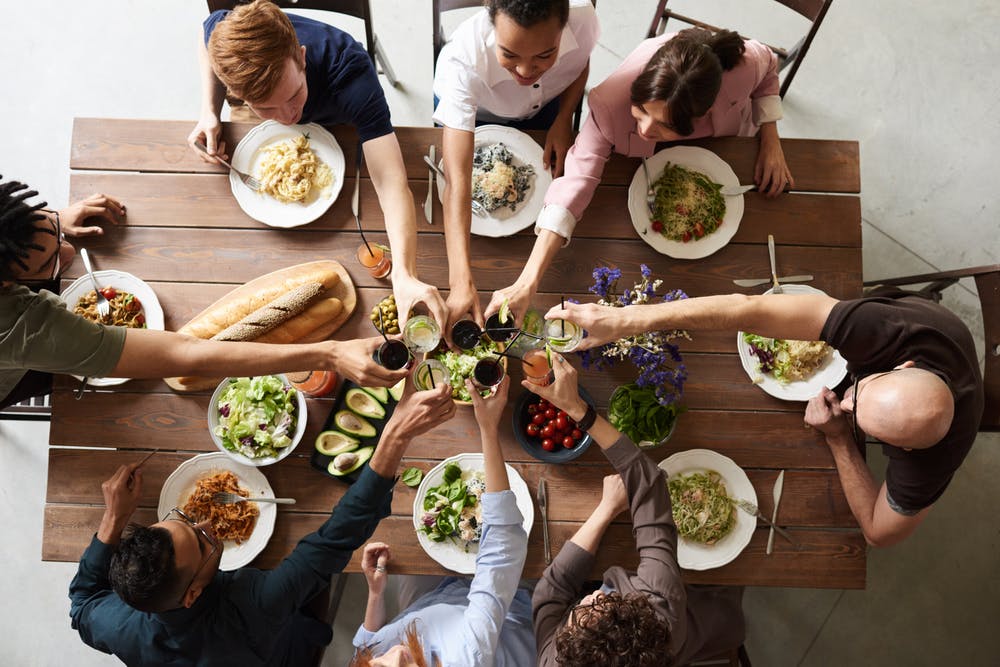We have so many opportunities to choose appreciation and express gratitude. It is a value in action, and a practice. Sharing gratitude has so many benefits for the giver, not to mention the receiver.
Gratitude Is A Choice
The emphasis is on the importance of making gratitude seeking, a choice.
Imagine that a woman comes in at the end of an exhausting day. Her partner greets her with “Hi love! I am so happy you are home. You look wiped out. I bet you would love to have me take on dinner tonight. You are incredible and give so much to those around you. You deserve a break.”
Compare that to: “Well, look who just walked in. Finally, you’re home. Where have you been? I am starving!” they said indignantly.
Imagine a beautiful snow-filled scene. One person might feel that it is annoyingly cold, hard to bear. To another, it represents stillness, and the opportunity to slow and savor. For the active type, having the opportunity to enjoy walking, biking or cross-country skiing to work is an unexpected pleasure. Generosity and community can be increased by shoveling for others who are not able to do so themselves. All these choices will generate health and well-being, connection or isolation.
It is a choice. Every. Single. Day. You can choose to express appreciation and gratitude, or displeasure and contempt. It’s all in the perspective and the ability to focus on the good. Why is that so important?
Gratitude Lights Our Way
Gratitude is the beacon of light through the darkest times. In grief, though our hearts are broken, it can give solace and comfort through reflecting on treasured memories and the things we loved most about the person.
John and Beth are going through a divorce where there are so much pain and remorse, sleepless nights and anxiety about the future. Gratitude for their time together, their children along with faith and hope can ease the pain and guide them with the wisdom needed rather than bitterness and closed hearts.
There is a great amount of research generously shared about the qualitative difference.
“The word gratitude is derived from the Latin word gratia, which means grace, graciousness, or gratefulness (depending on the context). In some ways, gratitude encompasses all of these meanings. Gratitude is a thankful appreciation for what an individual receives, whether tangible or intangible. With gratitude, people acknowledge the goodness in their lives. In the process, people usually recognize that the source of that goodness lies at least partially outside themselves. As a result, gratitude also helps people connect to something larger than themselves as individuals — whether to other people, nature, or a higher power.
Research on Gratitude
Gratitude is a way for people to appreciate what they have instead of always reaching for something new in the hopes it will make them happier, or thinking they can’t feel satisfied until every physical and material need is met. Gratitude helps people refocus on what they have instead of what they lack. And, although it may feel contrived at first, this mental state grows stronger with use and practice.” Harvard Health Publishing
We know, that in order to focus on the positive and what we appreciate, we have to set the intention. We are, as research shows, hardwired with a negativity bias. This bias has done wondrous things for humankind’s survival through existence. It, however, has not been great at helping us build health, positivity or connection with others. We also know that we are hardwired for connection.
To do that, we need a 5:1 ration of sharing appreciation vs complaints or problems.
When we “take in the good” and enjoy positive moments, it grows greater health and engagement.
More Research on Gratitude
Two psychologists, Dr. Robert A. Emmons of the University of California, Davis, and Dr. Michael E. McCullough of the University of Miami, have done much of the research on gratitude. In one study, they asked all participants to write a few sentences each week, focusing on particular topics.
One group wrote about things they were grateful for that had occurred during the week. A second group wrote about daily irritations or things that had displeased them, and the third wrote about events that had affected them (with no emphasis on them being positive or negative).
After 10 weeks, those who wrote about gratitude were more optimistic and felt better about their lives. Surprisingly, they also exercised more and had fewer visits to physicians than those who focused on sources of aggravation.
Ways to Generate Gratitude:
Words of Appreciation- Through letters, daily sprinkling in of kind words at home or at work, to others, gratitude is shared and increases connection.
Create a gratitude journal to write in the morning or the end of day to build focus on the positive things that happened. This increases a sense of well-being, even in the midst of difficult times.
Share gratitude as a ritual. Whether it is at home or in the workplace, having time to express positive feedback, appreciation for the moments and contributions creates a bond.
Resources:
John Gottman, PhD.The Gottman Institute Gottman.com
Harvard Health Publishing, Harvard Medical School
https://www.health.harvard.edu/healthbeat/giving-thanks-can-make-you-happier
Rick Hanson, PhD rickhanson.net



